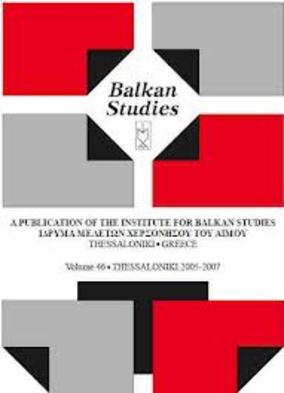Geopolitical expediencies and foreign policy implications in Greece, Serbia and Bulgaria following the signing of the Lausanne Treaty
Part of : Balkan studies : biannual publication of the Institute for Balkan Studies ; Vol.44, No.1-2, 2003, pages 81-93
Issue:
Pages:
81-93
Section Title:
Articles
Author:
Abstract:
The Asia Minor Catastrophe has left a host of problems that neededimmediate resolution. At that point in time, two mistakes of grave politicalsignificance, developed into severe blows weakening further the alreadyenfeebled Greek foreign policy. The first mistake was committed by the renownedinternational relations expert, Nikolaos Politis, who served as theGreek representative in the League of Nations. Politis and his Bulgarian opposite number, Christo Kalfvf concluded a Protocol, the so-called Politis-KalfvfProtocol- which recognized the slavophone population of Macedonia as Bulgarians.The second mistake was committed by General Theodoros Pangalos, awell-respected figure, who gained his reputation in the war of Asia Minor. Thesecond mistake was far more critical than the first one, as Pangalos tried tosatisfy his secret wish to reoccupy Eastern Thrace, through a military dictatorship.Immediately after his ascent to power, he concluded with Yugoslavia anumber of agreements, creating a network of relations favourable to Yugoslaviaand establishing a Serbian port in Thessaloniki. Because of the onesidedand burdensome nature these agreements had for Greece, they weretermed the “Pangalos’ Agreements”. The ensuing rise of Eleftherios Venizelosto power marked the beginning of a new era in Greek politics. He laid downnew foundations, obeying the spirit of the League of Nations on international cooperation and public diplomacy, revising at the same time, the Greek foreign policy.
Subject:
Subject (LC):




